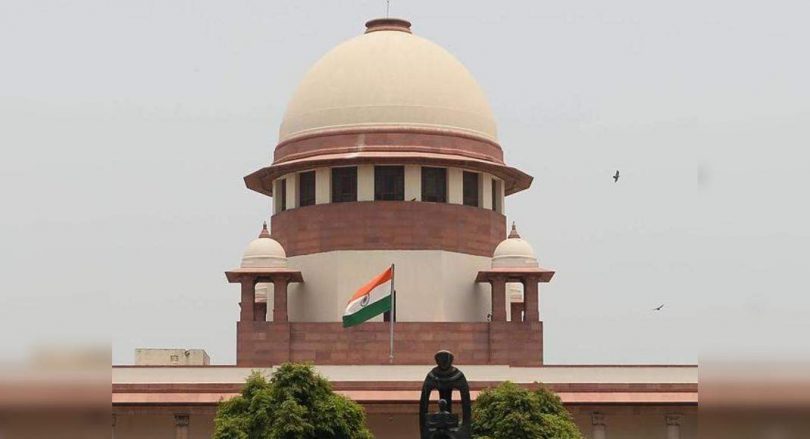NEW DELHI: The Supreme Court on Wednesday directed the PM-led National Disaster Management Authority (NDMA) to quantify within six weeks the ex gratia amount to be paid to the families of nearly four lakh novel coronavirus victims and said the NDMA failed to discharge its statutory duty even though Covid-19 was declared a disaster under the Disaster Management Act a year ago.
A bench of Justices Ashok Bhushan and M R Shah left it to the NDMA to decide what the ex gratia assistance should be but said the amount to be fixed by the NDMA and paid from the NDRF and SDRF would be over and above the ex gratia paid by states from other sources, including chief minister’s relief funds.
The Centre had taken a stand that though NDRF and SDRF had the financial capability to pay ex gratia, “a conscious decision has been taken by the Finance Commission and/or Union of India to make provision and/or use the fund from NDRF/SDRF for the purpose of creating infrastructure, hospitals, testing, vaccination, ICU facilities and other allied matters, including providing food to the BPL/migrant labourers, and not to pay ex gratia assistance”.
With the relatives of Covid-19 victims complaining that death certificates mostly mentioned reasons other than coronavirus infection as the cause of death, the bench of Justices Bhushan and Shah asked the Centre and state authorities to take steps to rectify mistakes in death certificates so as to enable families to get ex gratia.
The SC recorded the assurance of the Centre through solicitor general Tushar Mehta that non-accurate recording of Covid-caused deaths has already been made a criminal offence.
On Tuesday, the same bench had slammed the labour ministry for its “unpardonable” lethargy in implementing the SC’s 2018 direction to register all unorganised sector workers and directed all governments to complete their registration by July 31, which has been set as the deadline also for implementing the one nation one ration card scheme.
The SC said non-registration of all workers on the portal of the National Database for Unorganised Workers had deprived many needy workers of the benefits under social welfare schemes.
Writing Wednesday’s judgment, Justice Shah appreciated the financial constraints of the Centre and state governments in the face of a unique disaster in the nature of the Covid-19 pandemic, requiring the governments to fight it on several fronts, but stressed that once Section 12 of the DM Act mandated fixing of ex gratia amount, there was no escaping the statutory mandate for the NDMA.
“It can be said that the national authority has failed to perform its statutory duty cast under Section 12,” the bench said.
Rejecting the Centre’s fervent pleas to read “shall” as “may” to permit the government leeway to utilise financial resources that would be required to pay ex gratia for building health infrastructure, providing food, ration and livelihood to millions hit by Covid-19, the bench said, “We direct the NDMA to recommend guidelines for ex gratia assistance on account of loss of life to the family members of those who died due to Covid-19, as mandated under Section 12(iii) of DMA, 2005, for the minimum standards of relief to be provided over and above the guidelines already recommended for the minimum standards of relief to be provided to those affected by Covid-19.” The court rejected the petitioners’ plea for providing Rs 4 lakh ex gratia to the families of each Covid-19 victim.
The petitioners had said that while Bihar paid an ex gratia of Rs 4 lakh, Madhya Pradesh gave Rs 1 lakh and the Delhi government only Rs 50,000.
They pleaded for a uniform ex gratia amount payable from NDRF or SDRF.
However, the bench said the ex gratia amount, to be fixed by the NDMA and paid from NDRF and SDRF, would be over and above the ex gratia paid by states from other sources.
Justices Bhushan and Shah left it to the NDMA to determine what would be a reasonable ex gratia amount.
It said the NDMA would determine the amount “taking into consideration requirement/availability of the fund under the NDRF/SDRF for other relief and the priorities determined by the national authority/Union government and the fund required for other minimum standards of relief and fund required for prevention, preparedness, mitigation and recovery and other reliefs to carry out the obligation under DMA, 2005”.
Finding merit in the Centre’s argument that Rs 4 lakh earlier fixed for short-term disasters could not be applied to a long impact disaster like Covid-19, the bench said its spread and impact was very different from natural disasters.
“The pandemic is still not over in the country as also in the world and it is extremely difficult to predict with accuracy its further trajectory, mutations and waves.
Looking at its peculiarity and the impact and effect, the Covid-19 pandemic is required to be viewed differently from other disasters.
There shall not be any justification to provide for the same/similar amount by way of ex gratia assistance as provided in the case of other disasters/natural disasters, i.e.
Rs 4 lakh,” it added.
The SC acknowledged the multi-sectoral measures undertaken by the Centre, especially in bolstering public health, employment, providing food and shelter to common people/migrants, transportation to migrants etc.
“The government is also required to deal with the effect of the pandemic on the economy.
A huge amount is required to be spent from the NDRF/SDRF, even while providing minimum standards of relief.
It cannot be disputed that ex gratia assistance would also have financial implications and which may affect the other minimum standards of relief to be provided to persons affected by disaster.
No state or country has unlimited resources.
That is why it only announces the financial reliefs/packages to the extent it is possible.
When the government forms its policy, it is based on a number of circumstances, on facts, law including constraint-based governmental resources,” it said.







